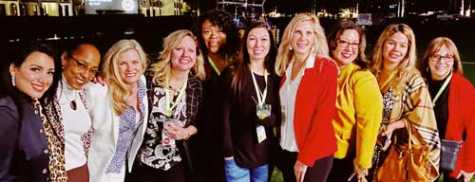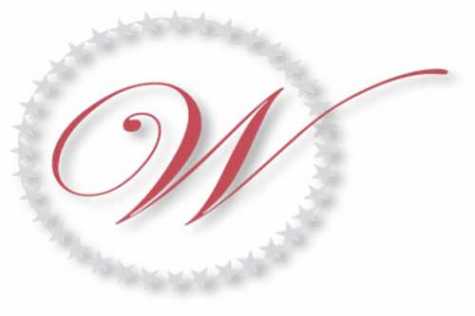Special Edition April CIECAst Focuses on How Collision Industry is Addressing Challenges Created by the Coronavirus

CIECA on April 6 hosted a special edition of its monthly CIECAst webinar, “How Our Industry is Addressing Challenges Created by the Coronavirus.”
The webinar featured leaders from a variety of segments in the collision repair industry, including Mike Anderson of Collision Advice, Mitchell International’s Debbie Day, Shan McMillon of Cocoa Auto Salvage, Don Porter from United Recyclers Group (URG) and Dan Risley from CCC.
The CIECAst webinar scheduled for April 21, “The Importance of OEM Certifications,” featuring CARSTAR’s Connor Smith, has been postponed until August.
“CIECA constantly looks for ways to help the collision repair industry approach evolving issues, increase efficiency and meet the needs of its customers,” said Ed Weidmann, CIECA’s executive director. “This broadcast is aimed at addressing the many issues created by these challenging times. We wish you all the best as the world adapts to the unusual circumstances created by the coronavirus.”
Risley, vice president of quality repair and market development for CCC, kicked off the session by sharing information about the current business climate, specifically noting a decline in the number of auto sales and miles driven, leading to fewer potential accidents.
“We are all receiving tons of information every day, and it seems to raise more questions than give us answers. We’re at a crossroads,” Risley said.
Imagining the possibility of emerging from this crisis into a new normal, Risley explained this could be possible because consumers are recalibrating their expenditures, and many are predicting a higher instance of virtual connections in the future. He provided examples, such as no-contact retail purchases and doctor’s appointments by Zoom, to support this hypothesis.
“The first thing everyone needs to do is let their customers, insurers and vendors know that their shop is open for business because not everyone realizes we’re deemed essential,” Risley said. “We’re seeing a huge uptick in a contact-free customer experience, increased use of technology, online documentation and payment, curbside estimates and no-contact pickups and drop-offs.”
To ensure the health and safety of staff and customers, Risley recommended staggering work schedules and breaks, providing masks and gloves to employees, maintaining distances, requesting after-hours parts deliveries and offering weekend hours to help working parents who are now doubling as teachers to their children.
He suggested the industry take a more proactive approach to the customer experience by checking on customers. Shops can also capitalize on downtime to update their online profiles, making themselves more easily found by consumers.
“We’re going to be engaging with customers on levels we’ve never engaged with them before,” Risley said.
He concluded with a quote from John F. Kennedy: “Change is the law of life. And those who look only to the past or the present are certain to miss the future.”
McMillon, owner of Cocoa Auto Salvage in Florida and executive committee member of ARA, spoke about the temporary process changes implemented in her business due to COVID-19.
Due to higher than typical volumes and a failure to respect established boundaries, she closed her U Pull It Yard, as well as the full-service lobby; however, she assured everyone, the business is still 100% operational, offering curbside loading, pickup and shipping.
Customers are required to prepay for orders, unless they already have a charge account, to minimize contact for drivers, and adjustments are handled virtually.
“Most customers have been really understanding of these temporary changes—we’re all just trying to get through this,” McMillon said.
Since volumes have decreased, Cocoa Auto Salvage is using the downtime to evaluate the settings in its electronic platforms and review its inventory. Special projects like reorganization, auditing and maintenance fill the time as well.
“I currently have more time to work on my business instead of in my businesses, and I’m trying to take full advantage of that,” McMillon said.
McMillon encouraged CIECAst participants to prepare for what comes after we make it to the other side of this disaster.
“When we do, there will be a lot of opportunities for recycled parts. We have to get through this together. Take care of your employees, customers, vendors and each other, and appreciate the opportunities that lie ahead of us,” she said.
Weidmann then introduced Anderson of Collision Advice, who began by sharing a synopsis of the things he’s hearing from shops around North America.
Some shops have a lot of work, and some have minimal. He praised the OEMs and rental car companies for continuing to service shops and customers.
Anderson noted there have been some layoffs but said “Most shops are trying to hang onto their employees because they believe there will be a lot of work once we get through this.”
Addressing what shops are doing during this crisis, Anderson listed some suggestions: spray booth maintenance and filter changes, pressure washing shops, servicing equipment, chasing receivables from management systems, setting up online accounts and evaluating finances.
He also noted a lot of shops are taking advantage of online training opportunities and reviewing standard operating procedures (SOPs) from vehicle manufacturers to strengthen their team for what comes after the COVID-19 crisis.
Anderson said this crisis provides insight into the future of the industry as claim count declines due to ADAS.
“A lot of sales cover a lot of sins, and sales were up last year because severity was up, but car count is decreasing,” he said. “It’s important to focus on capture rate, and this forces everyone to build best practices that will benefit them in the future.”
Predicting that insurance claims will also be handled differently in the future, Anderson foresees more investment in technology and more trust in data and analytics. If the government offers incentives to boost new cars sales once this situation is resolved, he anticipates a quicker reduction in car count as more vehicles on the road will be equipped with ADAS, reducing accident frequency.
“There is a silver lining,” Anderson said. “The entire industry will be reset and likely rely more on technology. There are exciting times ahead, so stay positive.”
The penultimate presenter was Day, executive vice president and general manager of Mitchell International Auto Physical Damage, who examined the now, the next and the new normal as she offered practical advice on how to not only survive but thrive during this challenging time.
Now, the automotive and collision repair industries have been deemed essential businesses, but as such, “We face special responsibilities and challenges,” Day said. “Our goal is to keep customers safe while continuing to operate our businesses.”
Emphasizing the importance of slowing the spread of COVID-19, Day explored how the Internet and virtual claims handling has made this crisis significantly different than any other the nation has faced, allowing many workers the opportunity to work remotely and many businesses the ability to operate virtually. She reminded attendees when it comes to the global economy, “We are all connected.”
Day said no one knows what the future holds.
“Since no one knows, we must control what we can,” she said. “We must do our part. We must help others. We must help others do their part. So when you think about it, much of what will happen next is up to us. According to health care professionals, the next two weeks are absolutely critical to all of us.”
Day described what the new normal might look like and how we can invent a new reality that creates a new world for all of us. Partnerships will become increasingly important as society begins to understand no one can prosper alone, and technology will accelerate to support a virtual world.
“It’s an opportunity to reimagine our industry,” she said. “Create your new normal as an individual; determine your new pace, the skills you will acquire and how you will serve.
“Finally, as humans, stay connected to each other,” Day said. “If you’re on this call, you’re a leader in the industry, and it’s important that we all come together even as we remain physically apart. I look forward to facing this challenge with you as industry leaders. Be safe, be kind.”
Weidmann introduced the webinar’s final speaker, Porter, CEO of URG.
Now cancelled, URG’s annual educational conference was scheduled for April with a theme of “2020 Vision.”
“Hindsight is 20:20,” Porter said. “It’s easy to know the correct course of action after something has already happened. The coronavirus outbreak is, first and foremost, a human tragedy affecting hundreds of thousands of people. It’s already had a significant impact on the economy, particularly on small businesses of all kinds.”
Many organizations are re-evaluating themselves and their operations as they try to gain efficiencies and cut costs, Porter said. Executives are taking pay cuts, employees are being placed on furlough, companies are downsizing and some small businesses are just closing their doors for good.
In response to COVID-19, URG ceased all employee travel, began weekly educational webinars for customers and shifted resources to work on business strategies to help members continue operations and provide support.
“We’ve increased our focus on technology and product development, and we’ve also developed a work-from-home business process to protect our employees, while still providing quality customer service,” Porter said. “We understand that we’ll need to continue to adjust our business model throughout this crisis.”
Porter referenced an article by McKinsey & Company, “Beyond Coronavirus: The Path to the Next Normal,” which explores five necessary stages.
The first is “resolve,” where there is a need to address the immediate challenges COVID-19 represents to the workforce, customers, technology and business partners. Next is “resilience,” where the industry must address near-term cash management challenges and broader resiliency issues during the virus.
“Return” is the third stage, and entails creating a detailed plan to return business to scale quickly. Next, “reimagination” requires envisioning the next normal, including the implications for how institutions should reinvent themselves. Finally, “reform” requires being clear about how regulatory and competitive environments in the industry may shift.
“This battle is something we must win to find a path to the next normal, but the next normal may be different than the past normal,” Porter said. “We need to be able to adapt our business practices and philosophies to the new normal.”
Porter provided details about the FFCRA, CARES Act and PPG.
“Each business should perform a thorough analysis to determine the most effective strategy for their needs,” he said. “Remember, all of us are going through this crisis together. We need to try to work together to make sure all our businesses survive. It took all of us to make this industry great, and it will take all of us to restore that greatness after the battle is won and the crisis is over.”
As the April CIECAst concluded, Weidmann reminded attendees the webinar is eligible for an Automotive Management Institute credit.
“Take care of yourself and your loved ones,” Weidmann said. “Stay safe and healthy. There’s no better time to stand together and make our industry stronger for the days to come.”
To watch a replay of the April CIECAst, visit this link.
The May CIECAst, scheduled for May 19, will feature Brent Johnson, director of global production management for collision at VSG, presenting “ADAS Calibrations—Do It Right and Document What You Do.”
To register for the May CIECAst, visit this link.


